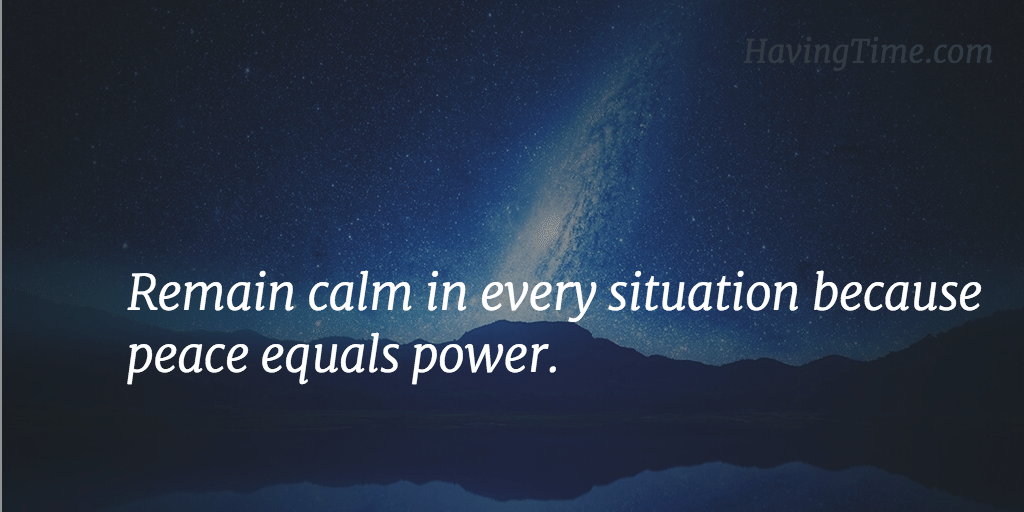Calm. Feeling anchored. That space from which you can choose clearly what to do rather than be reactive. Feeling at peace with yourself and the world. Who wouldn’t want that?
Modern living can severely challenge a person’s capacity to stay calm. At the same time requiring it more than ever to get by. It almost demands it in some situations. If you are regularly feeling overwhelmed or want to create calm in your life, it is possible.

“Between stimulus and response, there is a space. In that space is our power to choose our response. In our response lies our growth and our freedom.” –Victor Frankl
5 Useful Tips For Instant Calm and Peace of Mind
- Learn how to breathe to manage your physical stress symptoms.
Your body responds to perceived threat physically. While you may have no need to run away or fight off your daily stressors, your body will respond as if it does. Your heart rate increases, your breathing gets shorter and shifts into the chest and your muscles tense just to name a few. Reversing this reaction with a slow breathing technique shifts you out of the stress response and into the calm part of your nervous system.
- When overwhelmed ground yourself in the present moment.
When you are stressed you may experience an overload of thoughts, sometimes called racing thoughts. This can feel very overwhelming, and you may not be able to determine which thought to focus on at that moment. Instead, ground yourself in your environment. Choose something, the pattern on your handbag, the sound of the breeze in the trees, the smell of cooking food. Focus on that and only that until you feel less overwhelmed.
- Practice mindfulness
Mindfulness is proven to increase feelings of calm if practiced regularly. Mindfulness teaches you how to focus your mind on one thing, such as your breath or the present moment rather than on the content of your thoughts. People who practice mindfulness regularly experience reduced feelings of stress and anxiety. Mindfulness helps increase connectivity between your thinking, feeling and survival parts of the brain. This is good news because when there is greater connectivity between these parts of the brain, people are less reactive and more mentally well. It won’t surprise you to hear that mindfulness also helps reduce low mood and depression.
- Move your body at 5 minutes a day
Recent studies have shown that as little as 5 minutes of movement in the outdoors helps support brain chemistry to reduce feelings of stress and anxiety. Not only does it make you feel good at the moment, but it also helps balance the levels of serotonin and norepinephrine over the longer term (around three months). This is what antidepressant medication tries to do. When we have balanced levels of serotonin and norepinephrine, we are more likely to feel calm and less reactive. The current guidelines recommended guidelines of 30 minutes of exercise 3-5 times a week for optimal mental health, but it seems even smaller amounts help. Excessive exercise can have the opposite effect on mental wellbeing so don’t go over the top with working out. It’s hard to make an excuse not to move 5 minutes a day, right? Move your body; you are worth it!
- Deal with the causes of stress
The strategies above help you create calm by managing the feelings of stress. Often the most effective strategy is to deal with what is causing you stress. Sit down and look at what is that is bothering you. Is there a pattern to it? Is it something you can change? Are there skills you can learn or behaviors you can change that will stop the stress cycle happening? Do you need to change the way you think about a situation or end the worry trap? Are there other feelings that contribute to your stress that you need to address? If so, do it, your wellbeing is worth it. If not, use the strategies above to manage your stress.

You can feel calmer. Start using these strategies today. You can do it. You are worth it. For more strategies to create calm and sleep better, join my facebook group Unshakeable Calm.


